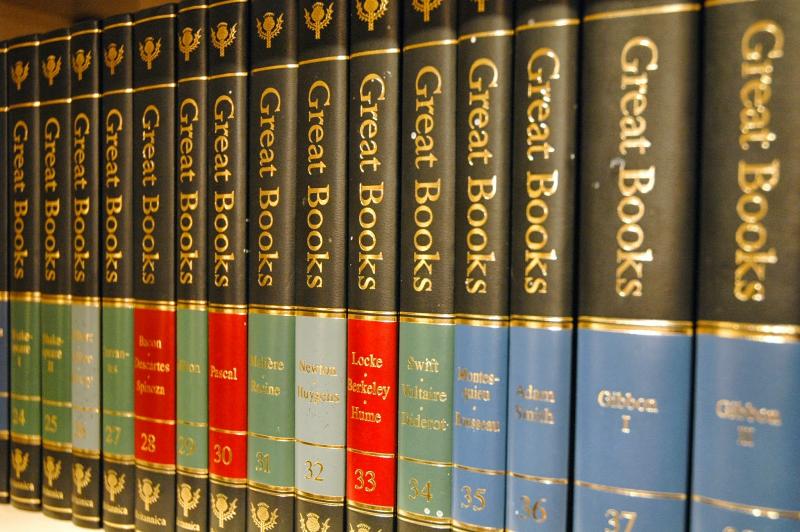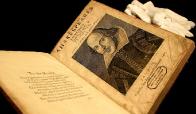he Great Books - On the Origin of Species by Charles Darwin
By: the Britanica

England became quieter and more prosperous in the 1850s, and by mid-decade the professionals were taking over, instituting exams and establishing a meritocracy . The changing social composition of science—typified by the rise of the freethinking biologist Thomas Henry Huxley —promised a better reception for Darwin . Huxley, the philosopher Herbert Spencer , and other outsiders were opting for a secular nature in the rationalist Westminster Review and deriding the influence of “parsondom.” Darwin had himself lost the last shreds of his belief in Christianity with the tragic death of his oldest daughter, Annie, from typhoid in 1851.
The world was becoming safer for Darwin and his theory: mid-Victorian England was stabler than the “hungry Thirties” or turbulent 1840s. In 1854 he solved his last major problem, the forking of genera to produce new evolutionary branches. He used an industrial analogy familiar from the Wedgwood factories, the division of labour: competition in nature ’s overcrowded marketplace would favour variants that could exploit different aspects of a niche . Species would diverge on the spot, like tradesmen in the same tenement. Through 1855 Darwin experimented with seeds in seawater, to prove that they could survive ocean crossings to start the process of speciation on islands . Then he kept fancy pigeons , to see if the chicks were more like the ancestral rock dove than their own bizarre parents. Darwin perfected his analogy of natural selection with the fancier’s “artificial selection,” as he called it. He was preparing his rhetorical strategy, ready to present his theory.
After speaking to Huxley and Hooker at Downe in April 1856, Darwin began writing a triple-volume book, tentatively called Natural Selection , which was designed to crush the opposition with a welter of facts. Darwin now had immense scientific and social authority, and his place in the parish was assured when he was sworn in as a justice of the peace in 1857. Encouraged by Lyell, Darwin continued writing through the birth of his 10th and last child, Charles Waring Darwin (born in 1856, when Emma was 48), who was developmentally disabled. Whereas in the 1830s Darwin had thought that species remained perfectly adapted until the environment changed, he now believed that every new variation was imperfect, and that perpetual struggle was the rule. He also explained the evolution of sterile worker bees in 1857. Those could not be selected because they did not breed, so he opted for “family” selection ( kin selection , as it is known today): the whole colony benefited from their retention.
Darwin had finished a quarter of a million words by June 18, 1858. That day he received a letter from Alfred Russel Wallace , an English socialist and specimen collector working in the Malay Archipelago , sketching a similar-looking theory. Darwin, fearing loss of priority, accepted Lyell’s and Hooker’s solution: they read joint extracts from Darwin’s and Wallace’s works at the Linnean Society on July 1, 1858. Darwin was away, sick, grieving for his tiny son who had died from scarlet fever , and thus he missed the first public presentation of the theory of natural selection. It was an absenteeism that would mark his later years.
Darwin hastily began an “abstract” of Natural Selection , which grew into a more-accessible book, On the Origin of Species by Means of Natural Selection, or the Preservation of Favoured Races in the Struggle for Life . Suffering from a terrible bout of nausea , Darwin, now 50, was secreted away at a spa on the desolate Yorkshire moors when the book was sold to the trade on November 22, 1859. He still feared the worst and sent copies to the experts with self-effacing letters (“how you will long to crucify me alive”). It was like “living in Hell,” he said about those months.
The book did distress his Cambridge patrons, but they were marginal to science now. However, radical Dissenters were sympathetic, as were the rising London biologists and geologists, even if few actually adopted Darwin’s cost-benefit approach to nature . The newspapers drew the one conclusion that Darwin had specifically avoided: that humans had evolved from apes , and that Darwin was denying mankind’s immortality . A sensitive Darwin, making no personal appearances, let Huxley , by now a good friend, manage that part of the debate. The pugnacious Huxley, who loved public argument as much as Darwin loathed it, had his own reasons for taking up the cause, and did so with enthusiasm. He wrote three reviews of Origin of Species , defended human evolution at the Oxford meeting of the British Association for the Advancement of Science in 1860 (when Bishop Samuel Wilberforce jokingly asked whether the apes were on Huxley’s grandmother’s or grandfather’s side), and published his own book on human evolution , Evidence as to Man’s Place in Nature (1863). What Huxley championed was Darwin’s evolutionary naturalism , his nonmiraculous assumptions, which pushed biological science into previously taboo areas and increased the power of Huxley’s professionals. And it was they who gained the Royal Society ’s Copley Medal for Darwin in 1864.
Huxley’s reaction, with its enthusiasm for evolution and cooler opinion of natural selection, was typical. Natural selection —the “law of higgledy-piggledy” in Herschel’s dismissive words—received little support in Darwin’s day. By contrast, evolution itself (“descent,” Darwin called it—the word evolution would only be introduced in the last, 1872, edition of the Origin ) was being acknowledged from British Association platforms by 1866. That year, too, Darwin met his German admirer, the zoologist Ernst Haeckel , whose proselytizing would spread Darwinismus through the Prussian world. Two years later the King of Prussia conferred on Darwin the order Pour le Mérite .
Who is online
97 visitors


